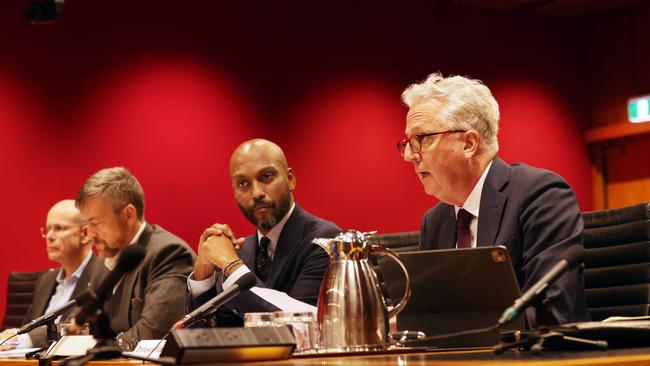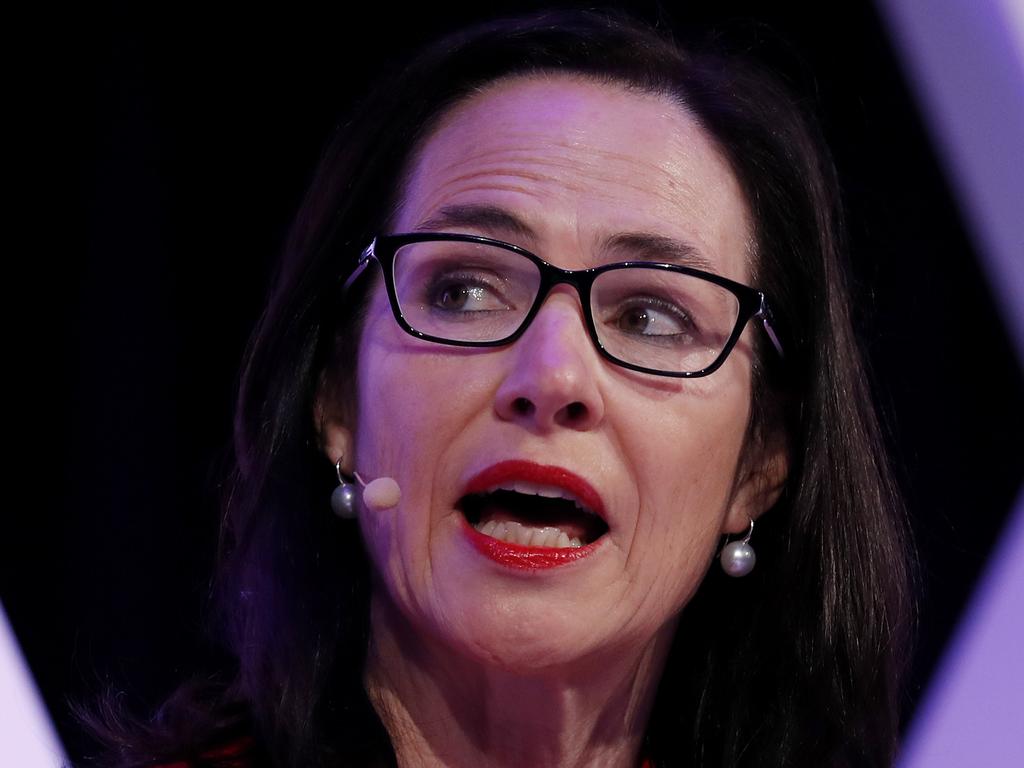
The core failing has been the government’s inability to control the overall migrant intake, leading to excessive population growth which in turn has led to several problems – and not just housing-related. Uncapped temporary visa categories are the main culprit.
Initially, the government interpreted the surging post-Covid migrant numbers as simply a reaction to the opening of the borders. Indeed, these large number of migrants were welcomed, with their entry facilitated by giving more resources to the Department of Home Affairs to process visa applications with speed. The hapless (and now former) home affairs minister, Clare O’Neil, declared that migrants were Australia’s special sauce.
Into this mix entered the equally inept Centre for Population located in Treasury. Its capacity to accurately predict the key variable of net overseas migration (long-term arrivals minus long-term departures) is akin to a very poor darts player. You only need look at the figures to realise that the officials in this section of Treasury simply don’t know what they’re doing.
In the 2022 budget, it was predicted that the NOM for 2022-23 would be 180,000. The actual figure was 538,000. For 2023-24, Treasury forecast NOM at 213,00. Even when it updated its projections, Treasury still expected NOM for last financial year to be just under 300,000. When the figure is finalised, it will be over 500,000.
This is so wrong you wonder how the officials keep their jobs, which they probably wouldn’t in the private sector.
We also know from the recently released national accounts that the population continues to grow at unacceptably high rates.
In the June quarter of this year, the recorded population growth was the second highest on record, running at an annual rate of 2.5 per cent. We are adding far more than an extra Canberra each year, but most of the new migrants are heading to Melbourne and Sydney.
I have made this point before, but it is worth repeating. Half of the NOM is made up of international students. The only way for the government to reach its NOM target – it’s 260,000 for this financial year – is for the number of international students entering the country to be scaled back significantly – slashed, in fact – as well as ensure there are more departures. There is no other way.
This is where the government’s cack-handed policy to restrict the number of new international students comes in. Having bent over backwards to facilitate the entry of students, the government turned on a dime by introducing various measures to try to deter their entry. There were new language requirements; new financial requirements; a slight reduction in work rights; there was Ministerial Direction 107 that has led to much higher visa rejection rates for applicants from certain countries.
While these changes have made some difference to the composition of the intake and the institutions in which the students are enrolling, it looks like international student enrolments in 2024 will be the highest on record, particularly at the Go8 universities.
The reality is that the quest by these universities, particularly Sydney, Melbourne, UNSW and Monash, to enrol more international students has gathered pace over the past two years.
Except for the Covid period, their international student enrolments have been rising for well over a decade, leading to a rising proportion of international students of their total enrolments. It’s as if their principal aim has been to maximise international student fee revenue, with all other considerations regarded as secondary.
Take Sydney University, the chief offender. In 2012, there were around 11,500 international students enrolled there. Ten years later, the number was close to 37,000. This year, they are nudging 50,000 and make up close to 50 per cent of total enrolments. The total fee income received by Sydney this year will top $1.5bn. Most of these overseas students are from China.
The unfettered growth of international student enrolments begs a serious question: how could the leaders of these respected institutions, that generally sit on valuable real estate gifted to them by previous generations, possibly think that this development would be acceptable to the wider community, let alone to the government of the day? Where were the voices of reason calling for moderation?
Sadly, the extremely highly paid university administrators seem to believe their largely fabricated justifications for brazenly pursuing their own self-interest. The government refuses to fund universities properly.
International student education is one of the most important export industries in the country and generates many jobs. More quality research benefits everyone; it might even save lives. Local students gain from having more international students. Any impact on the rental housing market is marginal.
All these claims are highly contestable. None of them justifies the headlong pursuit of greater numbers of international students. It has been a case of giving the vice chancellors an inch and they have taken a mile in what has to date been an essentially unregulated industry.
We should expect much better from these leaders – both ethically and in terms of restraint. In fact, they have behaved like toddlers in a lolly shop.

Rather than simply use international student fee revenue to fill what universities regard as the funding gap from the federal government – a rubbery notion at the best of time – they have lavishly rewarded senior managers and increased their number; have funded palatial new buildings and facilities; and have selectively supported research to improve their international rankings. Bear in mind here, these rankings are not entirely objective, with different results depending on the sponsoring body.
What then should we make of the policy of Jason Clare, Education Minister, to cap the number of new international student numbers at 270,000? The first thing to say is that this number is far too high if there is any hope of the NOM target being met.
Secondly, he would be wise to ignore the bleatings of the sector. If there are jobs to be lost, it’s because the sector has become bloated and unsustainable. With unemployment low, the displaced workers should be able to secure alternative employment.
Thirdly, it would be wise to keep Direction 107 because it seeks to constrain the numbers of students, with more interest in staying in the country than obtaining an education.
Having said this, the attempt by Clare to favour regional universities is bizarre. For one thing, it’s unlikely to work, as students wanting to study in Melbourne or Sydney won’t head to Bathurst instead. There are also far too many side-deals in the targets set.
The bigger picture here is that uncapped visa categories are a highway to excessive migrant intakes – the UK is a good example. They will be highly gamed, with applicants using student visas, for instance, to secure work rights and seek permanent residence.
We must not allow the selection of migrants to be handed to education administrators and dodgy migration agents.








Immigration has never been a policy strength of Labor. In government, it has attempted to walk a fine line between rigour and sentimentality, generally overlaid by the intrusion of brazen political considerations.